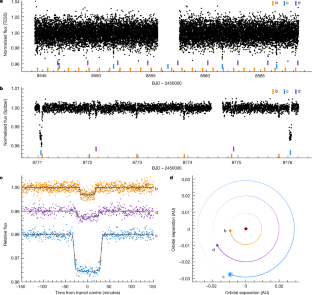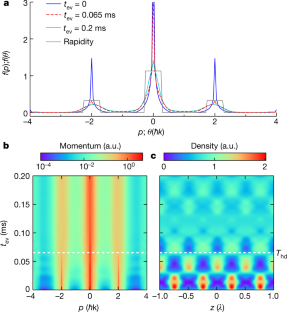2023-05-17 ドイツ・サステナビリティ研究所(IASS)
◆研究者は、より広範な地理的範囲での測定が必要であり、これによって正確な排出目録作成や大気中での役割の理解、大気汚染の削減政策の評価が可能になると推奨しています。特にヨーロッパでは、さまざまな種類のNMVOCsに関する測定データが不足しているため、これに注力する必要があります。
<関連情報>
- https://www.rifs-potsdam.de/en/news/non-methane-volatile-organic-compounds-neglected-category-emissions
- https://agupubs.onlinelibrary.wiley.com/doi/10.1029/2022JD037906
都市部の非メタン揮発性有機化合物(NMVOCs)測定値と排出インベントリにおける表現との比較-グローバルな視点より Comparing Urban Anthropogenic NMVOC Measurements With Representation in Emission Inventories—A Global Perspective
Erika von Schneidemesser, Brian C. McDonald, Hugo Denier van der Gon, Monica Crippa, Diego Guizzardi, Agnes Borbon, Pamela Dominutti, Ganlin Huang, Greet Jansens-Maenhout, Meng Li, Chang-Feng Ou-Yang, Shelby Tisinai, Jia-Lin Wang
Journal of Geophysical Research: Atmospheres Published: 06 April 2023
DOI:https://doi.org/10.1029/2022JD037906

Abstract
Emission inventories are a critical basis for air quality and climate modeling, as well as policy decisions. Non-methane volatile organic compounds (NMVOCs) are key precursor compounds in ozone and secondary organic aerosol formation. Accurately representing NMVOCs in emission inventories is crucial for understanding atmospheric chemistry, the impact of policy measures, and climate projections. Improving NMVOC representation in emission inventories is fraught with challenges, ranging from the lack of (long-term) NMVOC measurements, limited efforts in updating emission factors, to the diversity of NMVOC species reactivity. Here we take an initial step to evaluate the representation of urban NMVOC speciation in an emission inventory (EDGARv4.3.2 and EDGARv6.1) at the global level. To compare the urban measurements of NMVOCs to the emission inventory estimates, ratios of individual NMVOCs to acetylene are used. Owing to limitations in measurement data and grouping of NMVOCs in emission inventories, the comparison includes only a limited number of alkanes, alkenes, and aromatics. Results show little to no agreement between the ratios in the observations and those in the global emission inventory for the species compared (r2 0.01–0.20). This could be related to incorrect speciation profiles and/or spatial allocation of NMVOCs to urban areas. Regional emission inventories show better agreement among the ratios (r2 0.43–0.70). The inclusion of oxygenated species in NMVOC measurements, as well as greater global coverage of measurements could improve representation of NMVOC species in emission inventories, and a mosaic of regional inventories may be a better approach.
Key Points
- Representation of non-methane volatile organic compounds (NMVOCs) in global emission inventories is poor. It is better in regional inventories but still needs improvement
- Measurements of oxygenated NMVOCs are lacking in existing data and limit the scope of the evaluation of emission inventories
- NMVOC measurements are most available in North America and Asia and should be expanded to provide more data for Africa, South America
Plain Language Summary
Accurate representation of non-methane volatile organic compounds in emission inventories is critical for understanding atmospheric chemistry, as input for air quality and climate models, and quantifying the impact of policy. The area is however under researched. This study brings together available measurements of non-methane volatile organic compounds from urban areas and uses them to evaluate their representation in emission inventories. The findings show that for those species evaluated, there is poor agreement between the measurements and emission inventories. Recommendations for future research and improvement include more measurements of non-methane volatile organic compounds, including oxygenated species, and over a greater geographical area.



